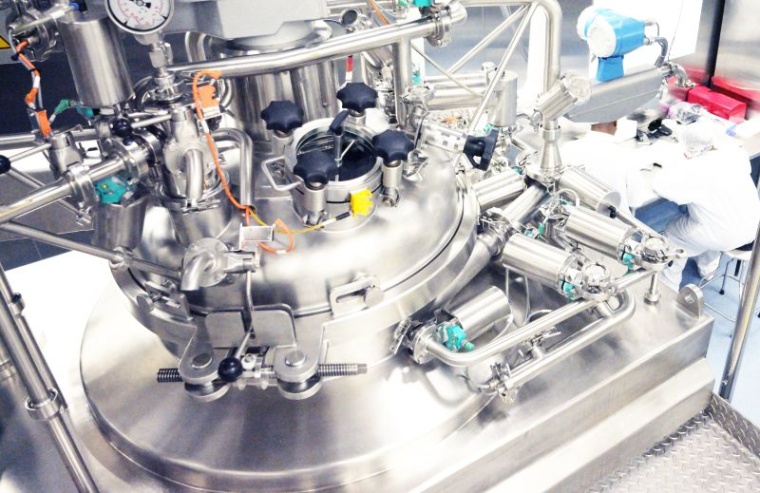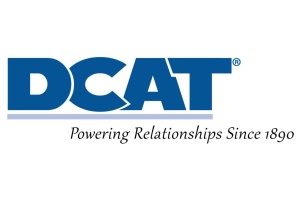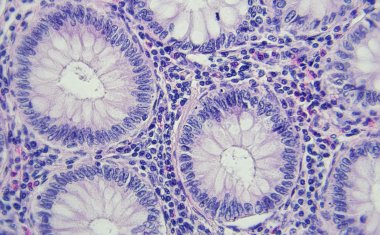Expansions in High-Potency API Manufacturing
DCAT Value Chain Insights rounds up recent expansion activity for highly potent drug substances and drug products.

Driven by the growth in oncology drugs, several CDMOs/CMOs have made or announced capacity expansions to manufacture highly potent active pharmaceutical ingredients (HPAPIs) and drug products.
Biologics and newer approaches, such as immunotherapies, are part of the oncology-drug market, but small molecules, including cytotoxics, and hybrid approaches, such as antibody-drug conjugates (ADCs), are also part of the market and represent opportunities for CDMOs/CMOs. DCAT Value Chain Insights rounds up recent expansion activity for highly potent drug substances and drug products.
CDMOs/CMOs and their Investment Projects
Lonza: In June 2019, Swiss CDMO Lonza announced an investment to expand HPAPI capacity at its site in Visp, Switzerland, by adding two 4-m3-scale, multi-purpose production lines. The expansion complements the company’s existing production capacities from lab to large commercial scale and further involves a subsequent capacity optimization in existing production lines. The expansion was scheduled to come on line this July. The company has the capabilities in place to handle HPAPIs to exposure levels up to 100 ng/m3 across all manufacturing scales.
In addition, in July 2019, Lonza initiated a two-year expansion of bioconjugation capacity for ADCs at its facility in Visp. Last year, it received US Food and Drug Administration (FDA) approval for the commercial manufacture of its third ADC from the facility.
WuXi AppTec: STA Pharmaceutical, part of WuXi AppTec, opened in the first quarter of 2020 a HPAPI facility at the company’s site in Changzhou, China, its second HPAPI facility. WuXi STA’s first HPAPI facility, located at its Shanghai Jinshan site, supports process R&D and kilo-scale production. The newly added HPAPI facility includes HPAPI labs and a pilot plant (250-L-1,000-L reactors) capable of handling APIs with occupational exposure limits down to 0.05 µg/m3.
Catalent: Catalent reported in August 2020 plans to expand its site in Loma Hermosa, Buenos Aires, Argentina by adding over 1,020 m2 of production space to handle cytotoxic and highly active products for prescription softgel manufacturing. The new facilities are due to be completed in December 2021.
Helsinn: Lugano, Switzerland-based pharmaceutical company Helsinn, focused on cancer-care products and a CDMO of APIs through its manufacturing subsidiary, Helsinn Advanced Synthesis, opened in late July 2020 a dedicated anti-cancer bay at its manufacturing plant in Biasca, Switzerland. The new bay will be used for the development, analysis, and manufacturing of clinical and commercial anticancer APIs.
Seqens: In 2019, Seqens invested approximately $30 million for a new facility for HPAPI manufacturing in Villeneuve-La-Garenne, France, located outside of Paris. The modular unit, with initial capacity of 10-15 t/y, further allows for future investments as customer needs evolve. The potent-compound manufacturing unit maintains a maximum level of particles in the working environment of 100 ng/m3 to allow for the production of SafeBridge Category 3 potent compounds, which is classified as molecules with occupational exposure limits (OELs) ranging from approximately 30 ng/ m3 to 10 μg/m3.
Cambrex: Last year, Cambrex opened a new $24-million HPAPI manufacturing facility at its site in Charles City, Iowa. The 550-m2 facility is part of an overall multi-year investment plan by the company in small-molecule API development and manufacturing across its facilities, which included a $50-million, 700-m2 multi-purpose manufacturing facility at Charles City, which opened in 2016.
Piramal: In January 2020, Piramal Pharma Solutions (PPS), announced an investment of $19 million to expand its facility in Aurora, Ontario, Canada, with the addition of 975 m2 manufacturing space in a new wing for API manufacturing overall and including HPAPI manufacturing for potent compounds down to an OEL of 1 mcg/m3. It will also include filtration and drying capabilities. The expansion is expected to be completed and running by April 2021.
In June 2019, PPS opened a new $10-million HPAPI unit at its site in Riverview, Michigan. The new wing, consisting of two kilo labs and a quality control analytical lab, was designed to handle HPAPIs with OELs of < 1 mcg/m3 and as low as 20 ng/m3.
CordenPharma: A contract provider of both small-molecule APIs and drug products, CordenPharma acquired a former Pfizer facility in 2017. The 5,000-m2 API manufacturing facility in Boulder, Colorado, included additional capabilities in high-potency manufacturing and specializes in the development, scale-up, optimization, and production of highly potent and cytotoxic/cytostatic APIs from development quantities to commercialization. The acquisition of the Boulder facility is aligned with a broader corporate strategy of offering fully integrated supply (APIs, drug products, packaging, and logistics), including development and manufacturing of highly potent and oncology products.
Fareva: In 2019, Fareva expanded HPAPI capabilities with the completion of a $34-million investment across two sites in Europe. The company’s Excella facility in Germany expanded OEB 6 (< 0.1 µg/ m3) capabilities with the completion of an analytical building, addition of jet milling with an isolator, and expansion of roller compaction for high-potency products. Fareva’s La Vallée site in France completed construction and qualification of analytical and chemistry R&D Labs, pilot plant, and commercial manufacturing buildings capable of handling OEB 5 (0.1 –1 µg/ m3). This investment more than doubled Fareva’s HPAPI capacity. The company provides high-potent capabilities across two sites with volumes ranging from 100 L to 4000 L for development and manufacturing of both APIs and drug products up to OEB 6 (< 0.1 µg/m3) from early phase to commercial.
Flamma: Last year, Flamma acquired Teva Pharmaceuticals’ Chemical Synthesis Center in Malvern, Pennsylvania. Among the capabilities of the 3,700-m2 facility was one cGMP HPAPI kilo lab suite with isolators (classified Band 4 by SafeBridge). Flamma has two cGMP facilities in Italy, located near Milan: Chignolo d’Isola and Isso. Additionally, Flamma is established in China, where its 100 %-owned Chinese subsidiary, Flamma Honkai, operates in Dalian in the Liaoning Province.
Cerbios: In 2019, Cerbios announced the investment of new production lines in a building dedicated to HPAPIs to enable accommodation of larger volumes and batch sizes. The expansions will accommodate SafeBridge Category 3 for batches ranging from 5 kg to 30 kg. At the time of the announcement in January 2019, completion was scheduled for the second half of 2020. Additionally, in December 2019, the Lugano, Switzerland-based CDMO announced successful SwissMedic authorization of a new cGMP bioconjugation suite for up-to commercial scale manufacturing of ADCs.
Evonik: German chemical manufacturer Evonik increased its assets and added additional capacities to support the small-, medium- or large-scale production of HPAPIs at its facilities in Tippecanoe, Indiana, and Hanau, Germany. The expansions, reported in 2018, enable the company to run several HPAPI projects down to an exposure level of 5 ng/m3.
AGC: A Tokyo-headquartered manufacturer of glass and chemicals, AGC expanded its facilities in 2019 in Chiba, Japan, to increase the company’s manufacturing capacity for pharmaceutical intermediates and APIs, including HPAPIs.
Novasep: In 2017, French CDMO Novasep opened a new €11-million bioconjugation facility at its site in Le Mans, France, for clinical and commercial manufacturing of ADCs. The new facility completes Novasep’s ADC manufacturing platform, which includes ADC payloads, drug linkers, and monoclonal antibody commercial-scale production capabilities.
Ajinomoto: In 2018, Ajinomoto Bio-Pharma Services opened a new ADC and highly potent fill–finish facility near its existing campus in San Diego, California. The 5,300-m2 manufacturing facility includes areas dedicated to bioconjugation, formulation, purification, quality control, and sterile fill and finish, including lyophilization. The facility can accommodate early clinical phase through commercially approved programs. In addition, the company, in March 2019, announced further investment for the reconfiguration of GMP manufacturing suites in Belgium to support increased HPAPI capacity and improve process safety with additional instrumentation.
BSP: BSP Pharmaceuticals, a Latina Scalo, Italy-based CDMO of oral solid dosage forms and injectables, announced an expansion of high-containment capacity dedicated to oncology compounds and the addition of new capacity for innovative molecules and immunotherapies. The investment involves expansion of the company’s existing facilities for oncology products and cytotoxics by approx. 2,800 m2 to increase its total conjugation capacity for ADCs. The new high-potency manufacturing capacities, as announced in 2019, are scheduled to be completed by the end of 2020.
PCI: PCI Pharma Services completed late last year an expansion of its Rockford, Illinois, facility to include 2,800-plus m2 dedicated to specialty drug-product capabilities with four high-potent compound suites and three new secondary packaging areas.
Recro: In 2018, Recro Gainesville, a CDMO of oral solid dosage products, added a 2,200-m2 facility, which included high-potent material processing space, near its existing 9,000-m2 contract pharmaceutical development and manufacturing plant in Gainesville, Georgia. The expansion provides capabilities from formulation development to clinical-trial material supply to commercial manufacturing with clinical packaging capabilities to be added in 2020.
Sterling: Sterling Pharma Solutions, a Dudley, UK-headquartered CDMO of APIs, opened a pilot-plant facility in 2019 following a £6-million investment to increase API capabilities, including the handling of potent compounds. Overall, the expansion included three new reactor trains at scales of 225 L, 500 L and 1,360 L and enables small to mid-scale clinical supply and commercial batch production.
Heraeus: Hanau, Germany-based technology group Heraeus announced last year that its subsidiary, Heraeus Pharmaceutical Ingredients, is expanding production capacities for platinum-based HPAPIs.
Minakem: Minakem, the CDMO division of Minafin, a Mont-Saint-Guibert, Belgium-based fine chemicals producer, opened in 2018 a new closed-controlled environment high-containment HPAPI production facility at the company’s plant in Louvain-la-Neuve, Belgium. The new facility extends Minakem’s capacity to develop and manufacture highly potent APIs from small-scale development to full GMP batch releases.
Procos: Procos, a wholly owned subsidiary of the Japanese company CBC, expanded to add a HPAPI manufacturing unit at its facility in Cameri, Italy, located near Milan. The expansion, which started in 2016, was completed in 2018.
Patricia Van Arnum,
Editorial Director, DCAT Value Chain Insights, Drug,
Chemical & Associated Technologies Association (DCAT)
pvanarnum@dcat.org
www.dcat.org; www.dcatvci.org
This article was published in the June 3, 2020 edition of DCAT Value Chain Insights, a weekly information resource from the Drug, Chemical, & Associated Technologies Association (DCAT), and was edited and updated for publication in CHEManager.

Company






